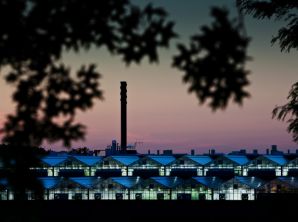 The winners of the 2013 World Food Prize were announced today, the three laureates recognized for their efforts to advance “human development by improving the quality, quantity or availability of food in the world.” And who could the winners be?
The winners of the 2013 World Food Prize were announced today, the three laureates recognized for their efforts to advance “human development by improving the quality, quantity or availability of food in the world.” And who could the winners be?Maybe the honor, which some consider to be the Nobel Prize of the food world, went to someone involved with promoting the System or Rice Intensification, a sustainable-minded approach to farming that has been attributed (albeit controversially) with record yields in India. Or perhaps it was bestowed on any number of people working on water-saving technologies that can help crops survive in parched conditions.
No, the World Food Prize has gone to three scientists who have been instrumental in the rise of biotechnology in agriculture, including Dr. Robert T. Fraley, a career Monsanto man who helped develop the biotech giant’s RoundUp Ready hybrids.
The career achievements of the two other laureates, Dr. Marc Van Montagu and Dr. Mary-Dell Chilton, include developing insect-resistant and herbicide-tolerant crops (Van Montagu) and creating the first transgene tobacco plant (Chilton).
Clearly, no three individuals working in the vast world of food have done more to advance human development than this esteemed group. I mean, GMO tobacco! Corn and soybean varieties that have driven up the price of seeds astronomically! Entire fields choked out by RoundUp-resistant superweeds! Improving the quality, quantity and availability of food in the world indeed.
Awarding these giants of biotech agriculture in 2013, following three decades in which they’ve been dominant in the field—a year that’s seen concerns over zombie wheat, the nation’s first state-level GMO labeling law, a proposed federal GMO bill, and a general growing resistance to the prevalence of transgene crops—feels somewhat strategic, if not outright aggressive. But is it really all that surprising? The World Food Prize was started by Dr. Norman E. Borlaug, who won the Nobel Peace Prize in 1970 for his involvement in the Green Revolution—the massive implementation of high-yield wheat hybrids grown with chemical fertilizers and irrigation. Dr. Borlaug was a champion of biotechnology. And the prize, which is worth $250,000, was once funded by General Foods; the private nonprofit counts DuPont Pioneer, Cargill, Monsanto, General Mills, PespiCo, Archer Daniels Midland Company, Syngenta Foundation, and Cargill among its sponsors.
But Henry Kissinger won a Nobel, right? So in its hypocrisy, the 2013 World Food Prize is actually the spitting image of its inspiration.





